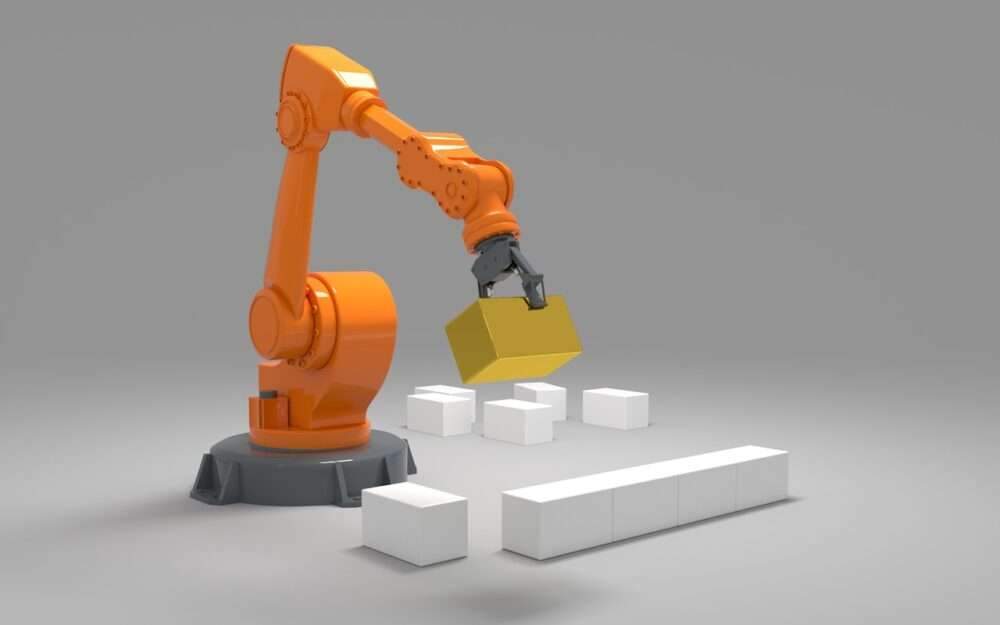Artificial intelligence is a technology associated with simulating human intelligence in machines to enable learning and problem solving.
Where AI makes the decision-making process simple, fast and efficient.
It includes the full range of processes in civil engineering to enhance construction processes and change the way engineers and builders work.
It also brings great benefits in civil engineering to engineering design,
analysis and construction management, compared to traditional methods.
This article discusses some of the ways in which artificial intelligence is being used in civil engineering.
The importance of artificial intelligence in civil engineering
The basic idea behind integrating AI and automation in civil engineering is to perform a task using algorithms and machines in a more efficient manner than what is expected of humans.
AI algorithms have the potential to help the construction sector overcome challenges and improve overall productivity and efficiency.
Traditional methods used to model and optimize complex structural systems consume significant time and computing resources.
But algorithms based on artificial intelligence provide better alternatives for solving problems in civil engineering.
The data required to develop AI algorithms is obtained using programmed machines such as drones, smart cameras, smart sensors, etc.
The data is analyzed to identify all possible constructive deviations and anomalies.
The AI algorithms also use trial and error methods to determine the best process to follow depending on site conditions.
Hence, such implementation of project implementation improves the quality and productivity of the project as a whole.

Artificial intelligence techniques in civil engineering
Here are some of the AI techniques used in civil engineering:
1. Evolutionary Computing (EC)
Evolutionary computing (EC) is a subclass of artificial intelligence that has been used in civil engineering for several decades.
It uses an iterative process and is an effective way to solve complex optimization problems.
The standard evolutionary algorithms used in civil engineering are genetic algorithms (GAs), artificial immune systems (AIS), and genetic programming (GP).
2. Artificial Neural Networks (ANNs)
Neural networks collect, store, analyze and process massive amounts of data obtained from experiments or numerical analyses to provide fundamental solutions to complex engineering problems.
It has wide applications in the study of building materials,
structural engineering, geotechnical engineering, construction management, and identification of structural defects.

3. Fuzzy systems
The fuzzy system is a tool for adapting the way human thinking and problem solving when dealing with uncertain problems encountered in construction projects.
It takes into account many aspects such as the quality of materials and equipment,
logistics and material risks directly related to administrative and financial capacity.
4. Expert system
The expert system is widely used in construction engineering, ground engineering,
geotechnical engineering, geological exploration, disaster prevention, materials engineering and petrochemical industry.
This method relies on the existing knowledge of human experts to create a knowledge system.
The system focuses on a specific area and uses all the corresponding knowledge a
nd experience stored in the programming system to solve complex problems.

Advantages of artificial intelligence in civil engineering
1. Prevent cost overruns
AI helps predict cost overruns based on project size and contract type.
It indicates the competency level of project managers and employees and provides them with real-life training to quickly enhance their skills and knowledge.
ANN is an artificial intelligence technology used in construction project management.
2. Reducing the risk of accidents
AI enables contractors and project managers to monitor and prioritize risks on the job site and keep the team focused on them.
For example, on a construction site, the project control team rates subcontractors based on their risk score.
Construction managers work closely with the subcontractor’s job site, which has a high degree of risk.
3. Efficient project planning
3D scans of construction sites are captured autonomously by robots,
and this data is fed into neural networks that can categorize the completion status of different projects.
If a project gets off track, the team can focus on issues and avoid major ones.
4. Increasing productivity in the workplace
Using self-driving machines to perform repetitive construction activities such as pouring concrete,
welding, demolition and construction is more efficient compared to human labor.
There are independent bulldozers to perform excavation and preparation work on the construction site.
It is controlled by a human programmer and the job is done according to the required specifications.
The use of facial recognition tools, on-site cameras, and other technologies helps project managers track work on site in real time.
These techniques finally enable the evaluation of worker productivity and its compliance with required standards.

Disadvantages of artificial intelligence in civil engineering
1. The cost
AI is only used by organizations that can afford the costs of implementation and maintenance,
and integrating robots and other complex machines is expensive.
2. High unemployment rate
Artificial intelligence encourages more computer technologies and industrial robotics that require fewer human workers,
and thus, has a negative impact on the labor market.
For more architectural news




